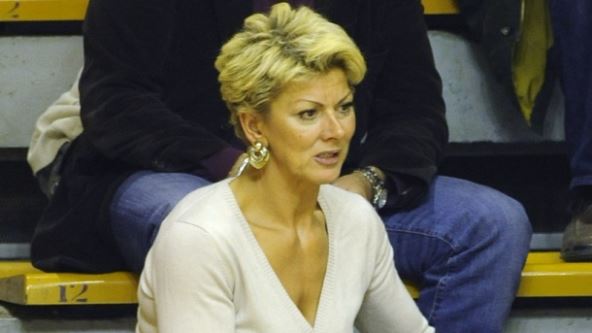Srđan was 29 years old captain, with 115 men under his command at Košare: His life hung by a thread many times, but this date stands out most in his memory

Retired artillery lieutenant colonel Srđan Nikolić recalls the most dramatic moments of the legendary battle in Kosovo, where 150 men served under his command.
“It was Good Friday, 1999. We had taken up our firing position near the poultry farm in the village of Punoševac, with the observation post on Mount Škoza, just a short distance from the enemy. We targeted the regions of Maja Glava, Glava, Rasa Košares and struck the convoys arriving as reinforcements from Albania, as well as their artillery. After two and a half hours of shelling, we received information that we would be directly targeted by NATO. I immediately ordered relocation to the village of Molić. Nineteen minutes later—NATO bombed the position we had just abandoned!”

This is how Srđan Nikolić, retired artillery lieutenant colonel, recalls for Kurir the start of the legendary Battle of Košare, which took place 26 years ago.

On 9 April, forces of the terrorist KLA, supported by intense artillery fire from the Albanian army and NATO air support, launched a ground offensive on the Košare outpost. The Yugoslav soldiers, though outnumbered, with epic courage, resilience and exceptional military strategy, halted their advance into Kosovo and Metohija.
Nikolić was then the commander of the 1st Howitzer Artillery Battery 122 mm in the 125th Motorised Brigade. He was only 29 years old and held the rank of captain. Under his command were 115 men.
There were many battles, many close calls, but what he remembers most vividly is 16 April 1999, when they provided support from the observation post on Mount Škoza to our forces launching a counterattack on Maja Glava and Glava.

“Shells were falling just 50 metres from our forces. With sniper-like precision, we hit enemy firing points, machine guns and troops in cover. That was when our observation post was discovered — KLA fired upon us with a cannon. Because of incoming NATO aircraft, I couldn’t return fire immediately, and within ten minutes, around 50 shells landed within a 40-metre radius around us. All of them detonated, except one that fell just a metre away between soldier Milanko Nedeljković and me. Its fuse broke off on impact. After we destroyed the cannon, I doused the fuse with water, dug the shell out of the ground, and carried it with me for a long time as a reminder,” he explains,” adding that only eleven of them held the line for hours against a far superior enemy until reinforcements arrived.

Nikolić is originally from the imperial city of Prizren. His house was set on fire with petrol in 1999, blown up with dynamite in 2004, and in 2018 it was levelled by bulldozers and turned into a car park.
Although the battle began in April, the conditions were severe. In the Prokletije mountains, at elevations of around 2,000 metres, there was up to two metres of snow in April. Fog, snow, rain… They endured it all while sleeping in the woods, in snow-dug shelters, with NATO planes flying overhead and bombs whistling past. Nikolić would set out on a three-day combat mission with his men and end up staying for twelve. During the 67 days of battle, he lost 49 kilograms in weight.
There were countless battles, and he also remembers 11 May, when around midnight NATO aircraft bombarded them with six cluster bombs in the Guri Gat area, where they were stationed in the woods, in snow shelters. The noise, he says, was horrific and indescribable.

“Around 3 a.m., with the reconnaissance-sabotage battalion of the 72nd Special Brigade, we set out to secure an observation post on a cliff with a clear view of the Košare outpost. At 4:55, artillery preparation began with all available firepower, followed by our counteroffensive. That was one of the most powerful professional feelings in my life. The whole of Metohija was visible; dawn was breaking; flames were shooting from all artillery pieces of the Priština Corps. I directed four “Košava’s”—modified 250-kilogram aerial bombs—onto the outpost, and after the explosion, burning fragments flew up to 500 metres in all directions. And the forest... it burned and glowed… That day, we hit an Albanian army cannon on the border, foreign instructors at the Padež outpost, as well as the KLA convoys coming from Albania as reinforcements,” says Nikolić, who is also President of the “Košare” Veterans Association.

He considers his greatest success to be the fact that none of the men under his command were killed up until 14 June 1999, when the battle ended.
And there were countless close calls. NATO aircraft dropped aerial bombs, cluster bombs, and depleted uranium rounds on them, while the regular Albanian army and KLA shelled them with conventional artillery. Shells and bombs fell just metres away. He no longer counts the number of infantry bullets fired at them.

“During the Battle of Košare, 108 warrior-heroes laid down their lives for the homeland—92 of them from the 125th Motorised Brigade, which, due to the bravery of its soldiers and officers and the sacrifices endured, was awarded the Order of the National Hero on 16 June 1999. Every member of the Yugoslav Army fought for every inch of land, for his comrade, for his brother. The true but invisible heroes of the battle were the fearless, fresh-faced conscripts—just 19 or 20 years old—from the March, June and September intakes of 1998,” he says, adding that, “Kosovo and Metohija is sacred ground, soaked in the blood of warrior-heroes, from which red Kosovo peonies bloom.”








































VELIKA ČAST! Vučića će Tramp primiti u privatnoj rezidenciji, gde ima mesta samo za probrane - tu su bili Si Đinping, Orban, Meloni... MASK JEDINI STALAN GOST